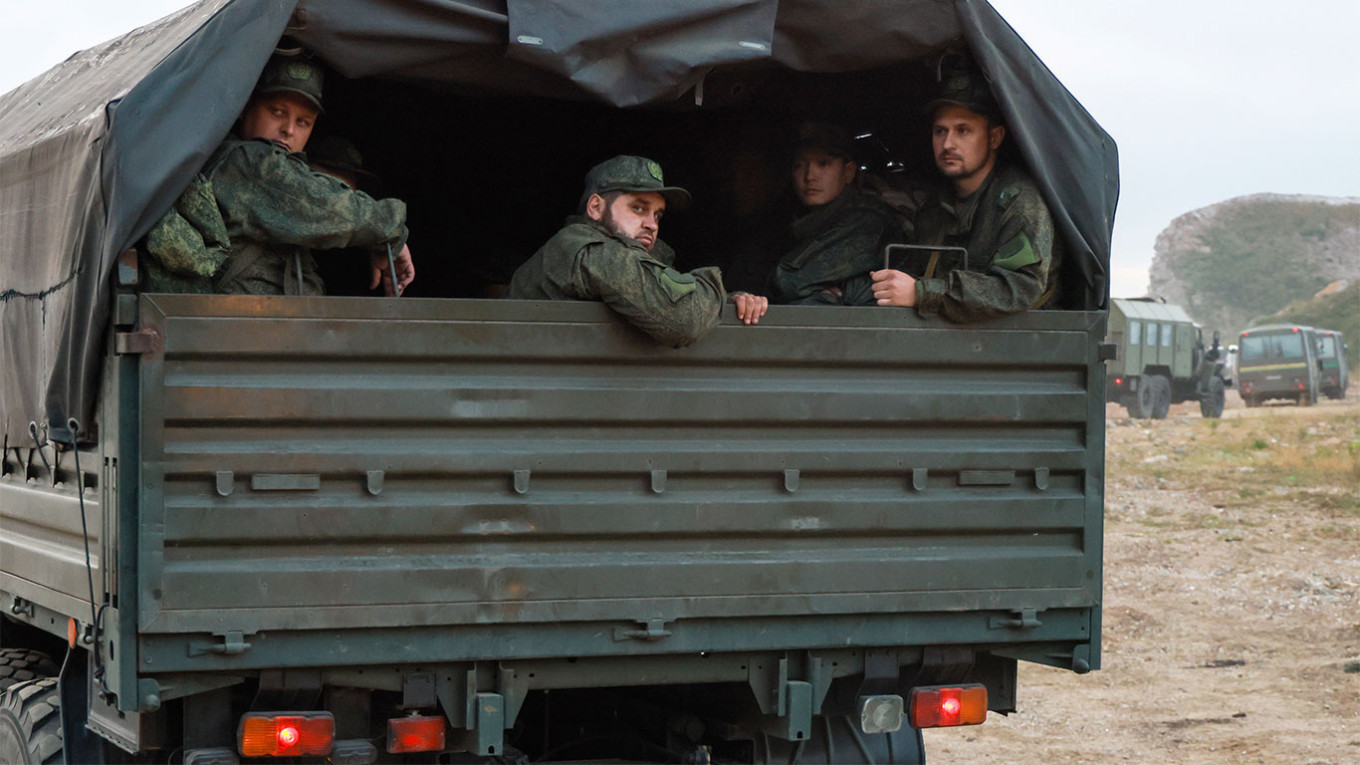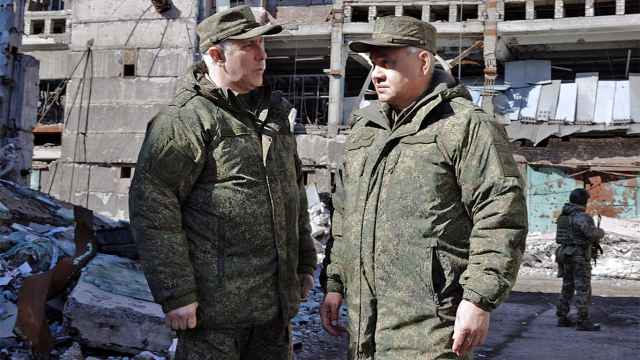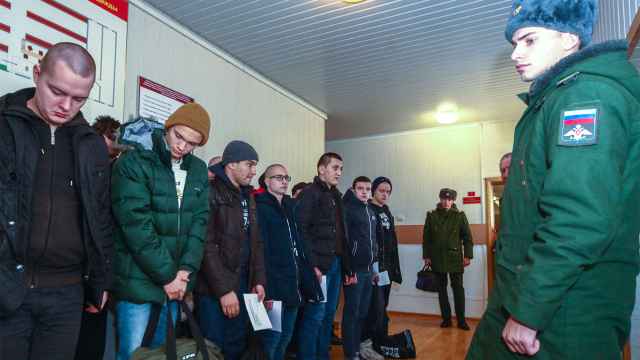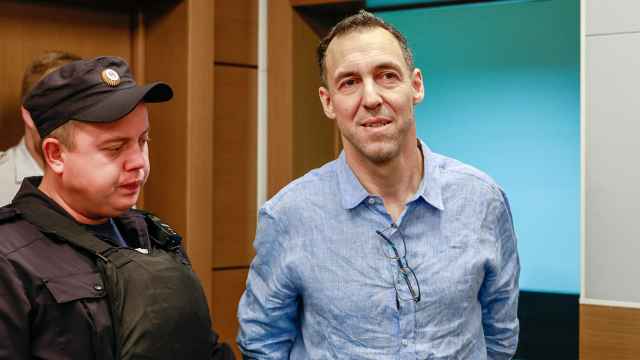Russian President Vladimir Putin signed a decree Wednesday calling up military reservists for annual training as legal experts say those who turn up could face pressure to sign contracts to be sent to fight in Ukraine.
Such trainings are a routine event in which reservists undergo two-month combat readiness drills in the Armed Forces, National Guard, Federal Security Service (FSB) and state security agencies.
Experts interviewed by state-run news agency TASS said the called-up reservists would not be mobilized and sent to Ukraine.
“Citizens called to the training camp will help remove military equipment from long-term storage, fix, unpack [and] check its readiness for combat operations,” said military analyst Viktor Litovkin.
But independent news website Agentstvo cited lawyers who said that the reservists could be pressured into signing up for contract service and being deployed to the battlefield.
“A person at the Defense Ministry’s disposal for two months can be persuaded, solicited and tempted to sign a contract,” said lawyer and activist Artyom Faizulin.
Those who refuse to attend the training camp are subject to fines of 3,000 rubles ($40) under Russian law.
Putin’s decree comes ahead of an expected Ukrainian counteroffensive and amid ongoing speculation that the Russian authorities could announce a second round of mobilization to boost Russia’s flagging campaign in Ukraine.
Putin’s decree did not specify the date and number of reservists to be called up.
Last month, Putin signed a law that introduced digital summonses for those eligible for military service and a package of legal restrictions for those who seek to evade a call-up.
A Message from The Moscow Times:
Dear readers,
We are facing unprecedented challenges. Russia's Prosecutor General's Office has designated The Moscow Times as an "undesirable" organization, criminalizing our work and putting our staff at risk of prosecution. This follows our earlier unjust labeling as a "foreign agent."
These actions are direct attempts to silence independent journalism in Russia. The authorities claim our work "discredits the decisions of the Russian leadership." We see things differently: we strive to provide accurate, unbiased reporting on Russia.
We, the journalists of The Moscow Times, refuse to be silenced. But to continue our work, we need your help.
Your support, no matter how small, makes a world of difference. If you can, please support us monthly starting from just $2. It's quick to set up, and every contribution makes a significant impact.
By supporting The Moscow Times, you're defending open, independent journalism in the face of repression. Thank you for standing with us.
Remind me later.






